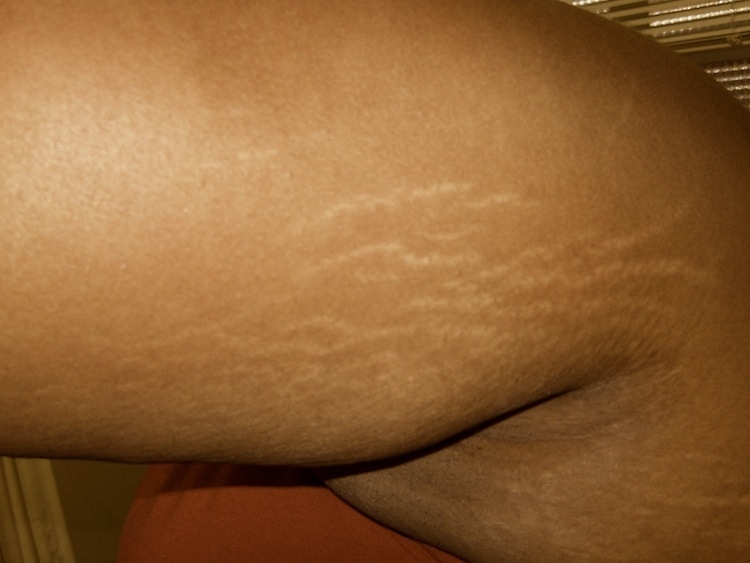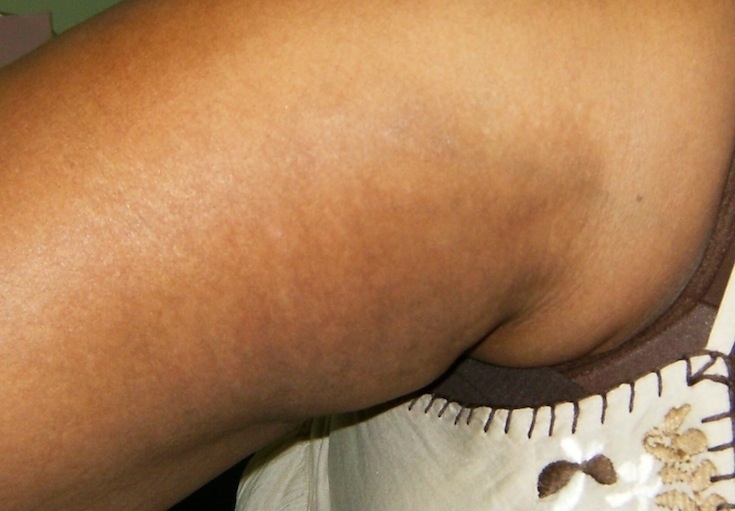London: A new treatment for unwanted scars and surface pigmentations of the skin has been launched by Dermink, a London clinic.
The treatment at the new north London clinic is provided by DermInk’s Medical Director and leading micropigmentation specialist, Dr. Theresa Ward Bush.
“Despite advances in treating pigmented nevi, post-inflammatory hyperpigmentation, hypopigmentation, vitligo and striae, such abnormalities can resist treatment. Micropigmentation can be the solution–not curing the condition but providing a good cosmetic result that helps rebuild patients’ confidence.”
The specialist treatment is a sub-division of dermatological and plastic surgery, and is routinely used to conceal a wide spectrum of pigmentation conditions and diseases of cosmetic importance. Scars, burns, and other skin colour imperfections can be minimised or completely hidden by blending custom mixed hypoallergenic flesh coloured medical pigments into the skin, rendering surface imperfections inconspicuous even on close inspection, permanently.

The procedure
Medical micropigmentation involves the use of hypoallergenic dermatological medical grade pigments blended to match the skin tone required, and then applied to the skin using specifically-designed instruments. The medical pigments used are metabolically inert and therefore different to tattooing ink. The pigments are immune to the biological changes in the skin or changes induced by external factors, ensuring that the original shades of the pigment are retained.
Practitioners carefully ‘colour in’ or ‘colour out’ unsightly or unwanted marks, be they lighter or darker than the surrounding skin tone. The procedure is virtually pain-free, with a local aesthetic (topical gel) and healing or down time is minimal with only four to six weeks required between treatments. (The number of treatments required varies according to condition being treated and the individual’s skin type).

Who is the treatment for?
DermInk treats patients with both major and minor issues. Minor issues can be small scars from accidents, stretch marks and cosmetic surgery operations i.e. tummy tuck or face lift scars. Major issues can include post-operative scars caused by the removal of facial skin cancers where patients are seeking a solution which can be considered as biopsychosocial – a combination of physical, psychological and social factors.
All types of skin tone can be treated, and the treatment does not cause skin lightening, unlike laser treatment which can cause unwanted hyper or hypopigmentation in some cases.
The following can be treated using medical micropigmentation:
● Hyperpigmented surface
● Hypopigmented surface
● Areola pigmentation
● Birthmarks
● Vitiligo
● Scars including surgery scars
● Sun spots
● Age Spots
● Burns
● Cleft lip
● Collagen induction
● Corrective procedures
● Necklace lines
Medical micropigmentation vs. laser therapy
Medical micropigmentation is a highly specialised field dedicated to ‘normalising’ irregular skin colour that has proven otherwise impervious to lasers and ultraviolet treatments. For some patients, laser or ultraviolet therapies may help with the appearance of scars or skin defects by breaking down the scar tissue. However patients suffering from atopic dermatitis, eczema or keloid scaring are not suitable candidates.
Referrals
Individuals can seek referral for medical micropigmentation via their GP, dermatologist or surgeon, or go to DermInk directly where they will be screened for their appropriateness for treatment. NB A referral from a dermatologist or GP may be required before treatment with DermInk can commence.
Biography Theresa Ward Bush
Theresa Ward Bush qualified with a Bachelor of Medicine in Sydney, Australia and at first followed the traditional route of residency with a view to becoming a general physician. After several rotations, she realised that her passion was aesthetic medicine and particularly the treatment of pigmentation disorders. Theresa holds numerous advanced certifications in medical micropigmentation, and works exclusively with pigment restoration and skin abnormality i
ssues alongside leading teaching hospitals, universities, surgeons and dermatologists both within the UK and internationally. She is a member of the European Society for Cosmetic and Aesthetic Dermatology – ESCAD, as well as the American Academy of micropigmentation, amongst other relevant organisations.
ssues alongside leading teaching hospitals, universities, surgeons and dermatologists both within the UK and internationally. She is a member of the European Society for Cosmetic and Aesthetic Dermatology – ESCAD, as well as the American Academy of micropigmentation, amongst other relevant organisations.
Theresa Ward divides her time between London and the USA where she set up her clinic in San Francisco in 2005. In the USA patients are routinely referred through prominent Plastic/Cosmetic Surgeons and Dermatologists nationwide, including the Stanford Derm Surgery Department at Stanford University, PAMF, Sutter and El Camino Hospitals.

